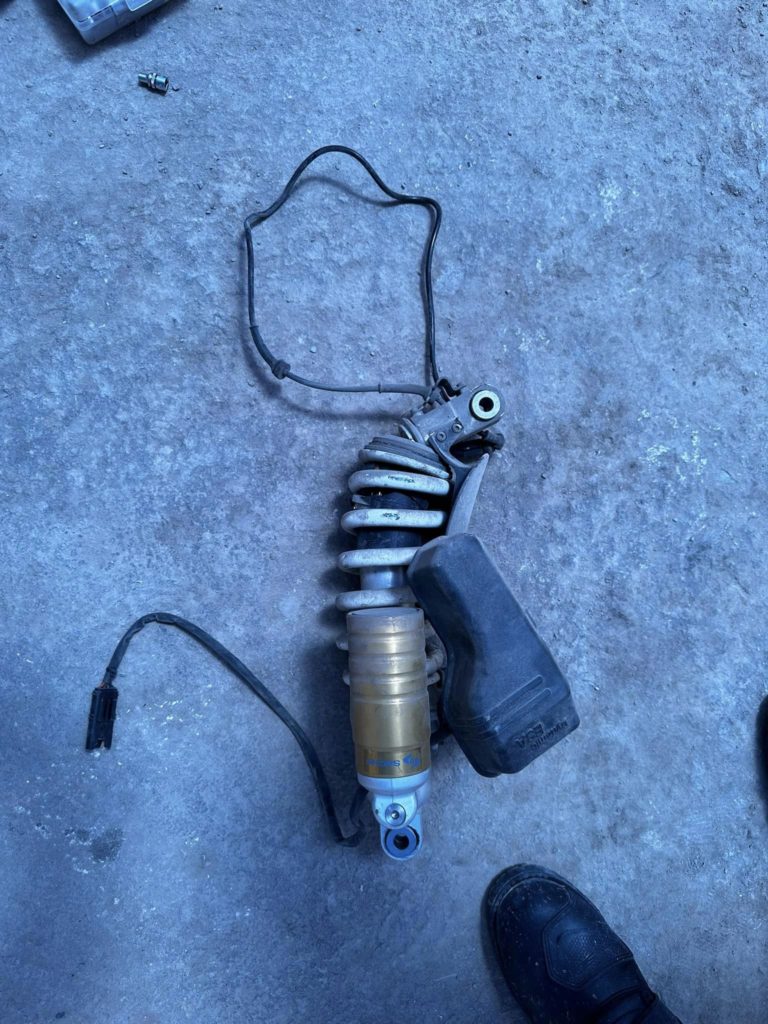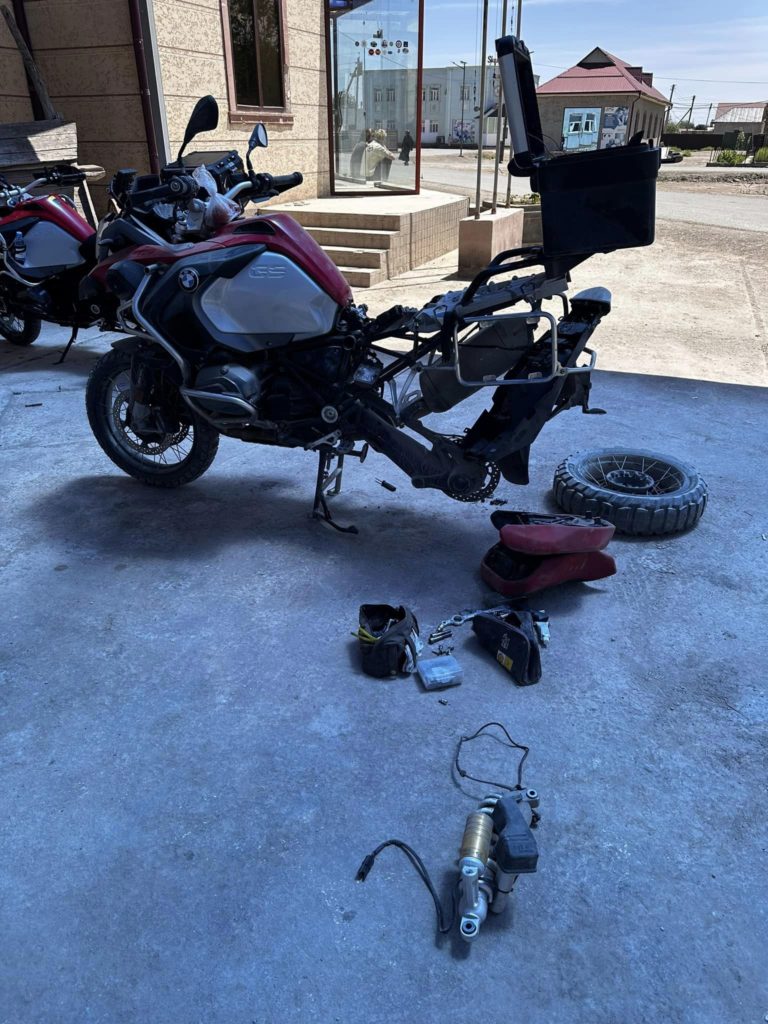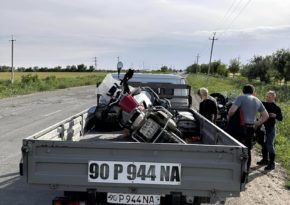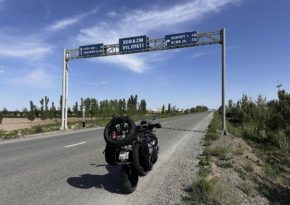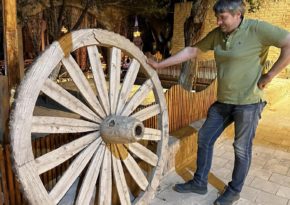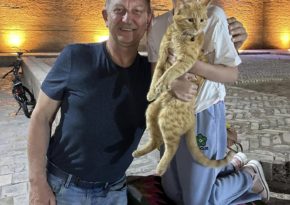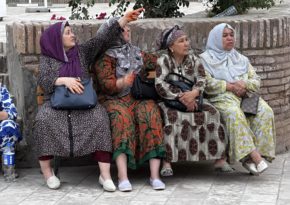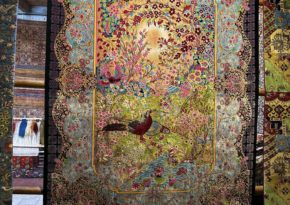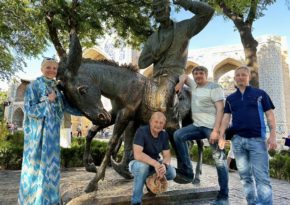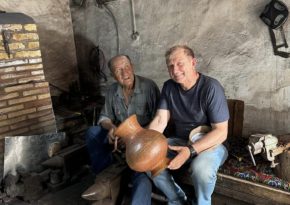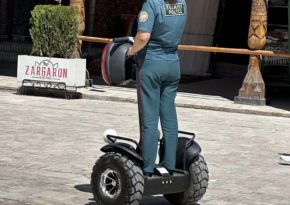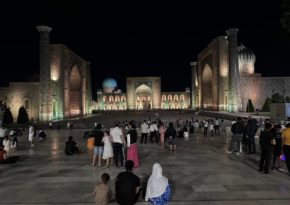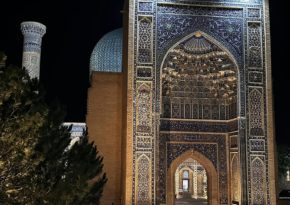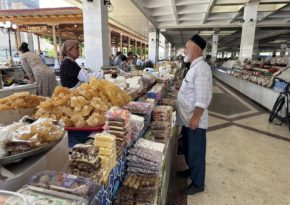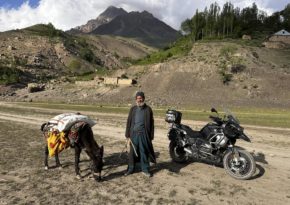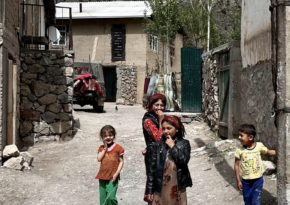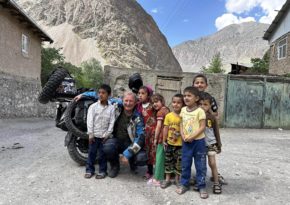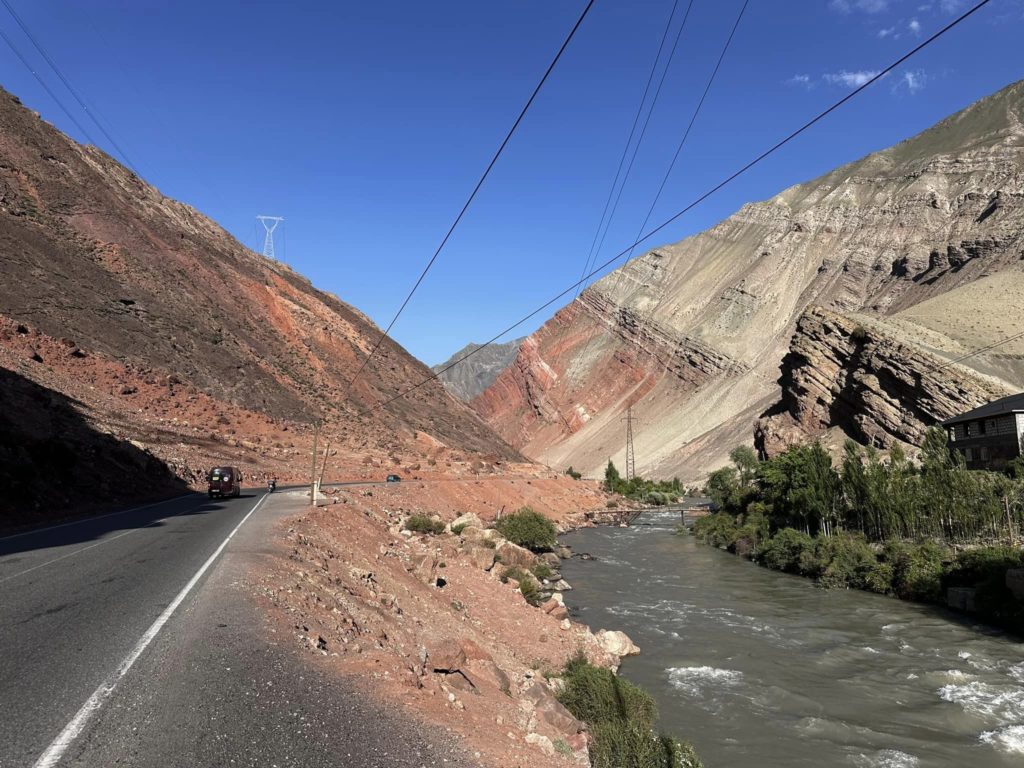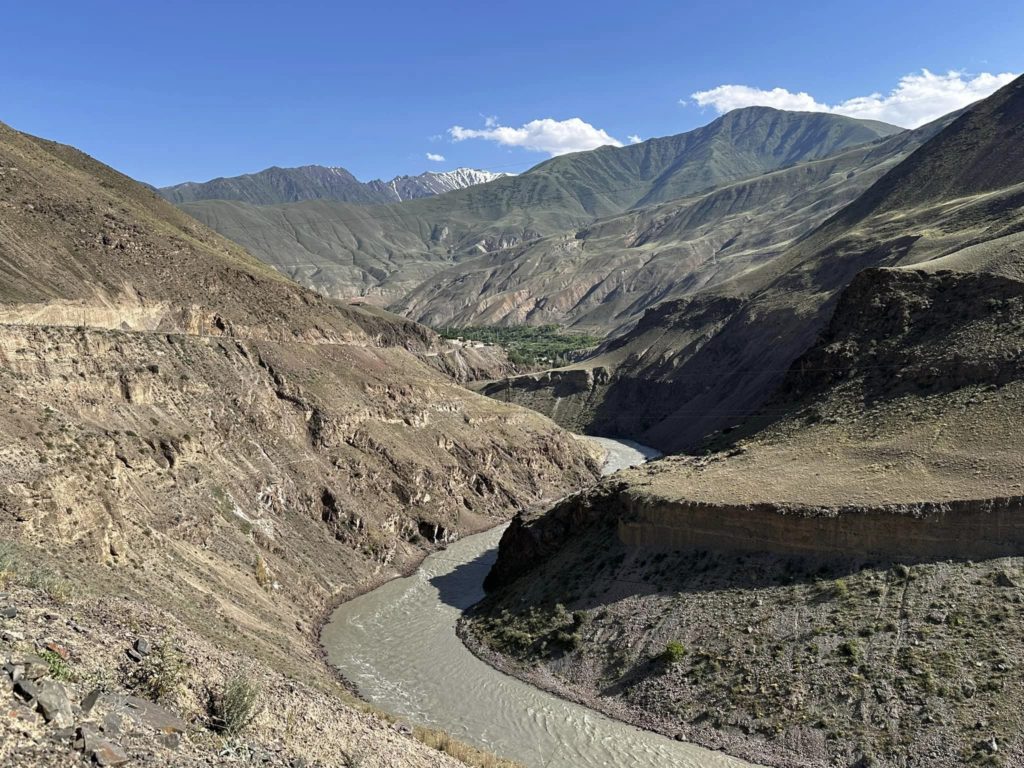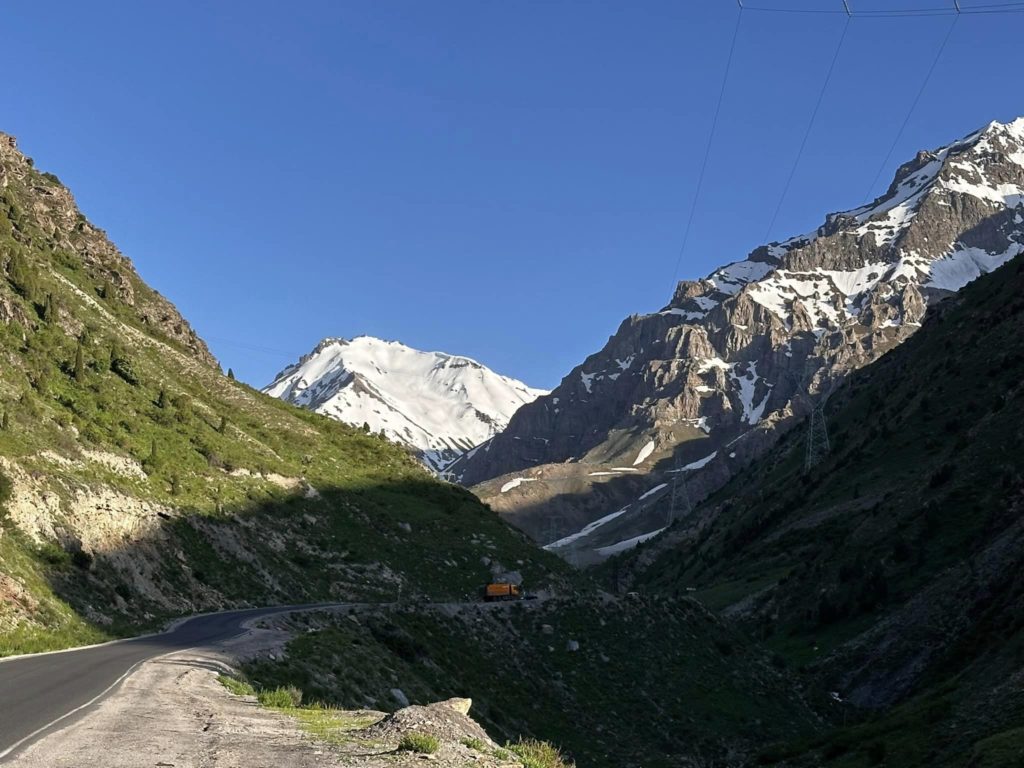Visiting the Taliban. Part 2.
Kazakhstan - Uzbekistan
Well, the real adventures have finally begun!
On Saturday at 10 am we left Beineu and in an hour we were at the border with Uzbekistan. It took us three hours to cross it. We ran with some papers through offices, where responsible people put colorful stamps in them. On leaving the checkpoint, we were mobbed by other comrades offering money exchange, insurance and local SIM cards.
A very large guy stood out against their background, giving instructions and speaking all the languages of the world fluently. Thus, he understood a Frenchman on a motorcycle, who had joined us during the border crossing. ))
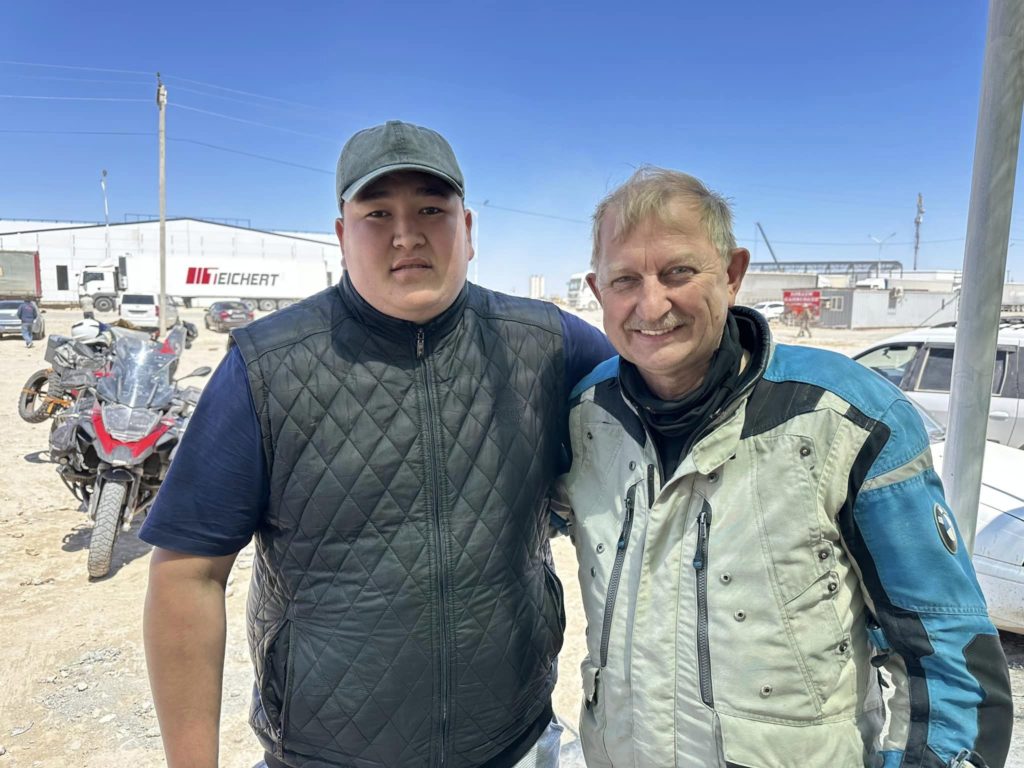
We were warned that the only Beineu-Nukus highway, to put it mildly, is not quite a road in the usual sense of the word. But I couldn't imagine how much!
250 kilometers of asphalt bombed into trash, over which loaded trucks are crawling, rolling from side to side.
Dust, dirt and huge pits with sharp edges, into one of which our comrade Nikolai eventually flew. After a strong impact, the rear shock absorber bent in an arc and the motorcycle turned into an immovable pile of metal.
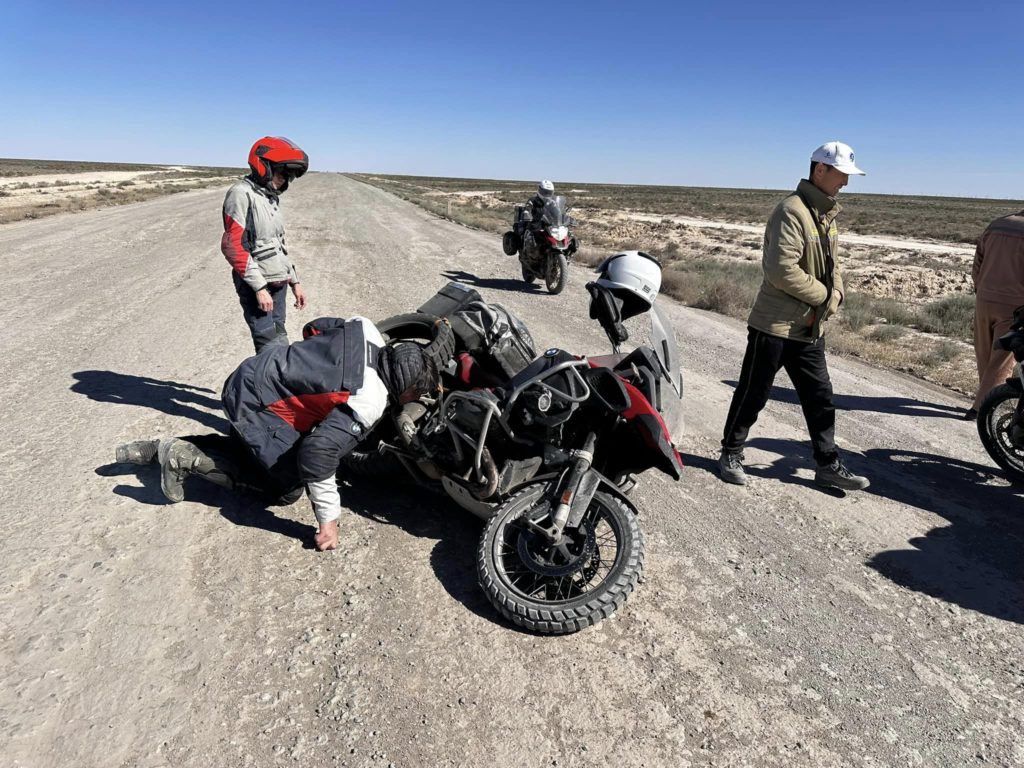
Here we are...
Anyone who has traveled along this "highway" has a good idea of what kind of civilization is around. 340 km from the border there is practically nothing — not a house, not a tree. The endless steppe.
Attempts to negotiate with truck drivers to grab the motorcycle along the way were unsuccessful as all the trucks are sealed and loaded to capacity.
It took four hours to find an evacuation option, and another 1.5 hours trying to squeeze a huge BMW into a small minivan.
And unforgettable remaining 300 kilometers in the night on the road for tanks at 7 degrees Celsius.
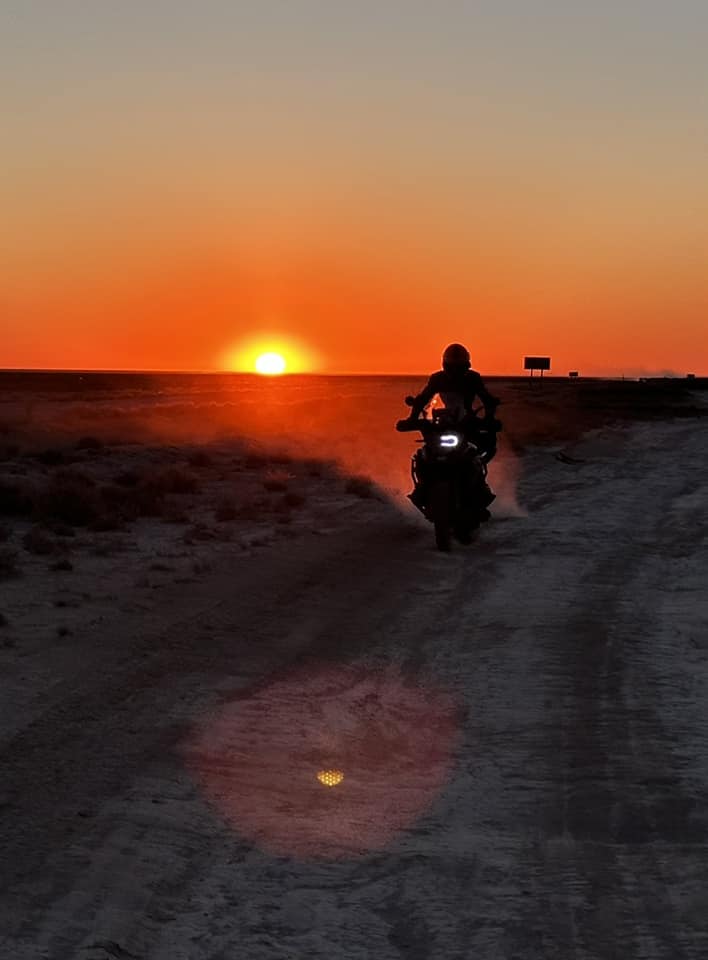
We met the dawn at the entrance to Kungrad, the first settlement on this Road to Hell.
There are about three hundred kilometers of paved highway from Kungrad, a small faceless industrial city in the north of Uzbekistan, to Khiva, but it was not without adventures here either.
The Zhiguli shock absorber structure constructed the day before could not withstand the Uzbek road and broke in half at the 250th kilometer.
It is good that the highway is busy and we managed to quickly catch a hitchhiking Gazelle, where we loaded the miracle of German engineering.
And while the new shock absorber flies and travels from Moscow via Tashkent to Khiva, we get acquainted with this beautiful ancient city.
Khiva-Bukhara..
Thanks to one very valuable member of our team, Lyudmila Zhukova, who organized a super logistic chain, the new shock absorber arrived in two days from Moscow to Uzbekistan directly to our hotel in Khiva..
The replacement took no more than an hour and the next morning we were already flying along the luxurious autobahn to the next point of our trip - Bukhara.
Along the way, we frolicked a little for a photo in the sands, fortunately they are everywhere here and after lunch they were already looking for our cozy hotel, lost in the narrow streets of the old town.
With gasoline in Uzbekistan has become a little easier than 5-7 years ago, but do not relax and refuel at every opportunity is recommended.
Gasoline is expensive - Ai-92 costs 85-90 rubles per liter. 95 is very rare and therefore more expensive. But gas stations are at every step, as 99% of cars in Uzbekistan have gas equipment.
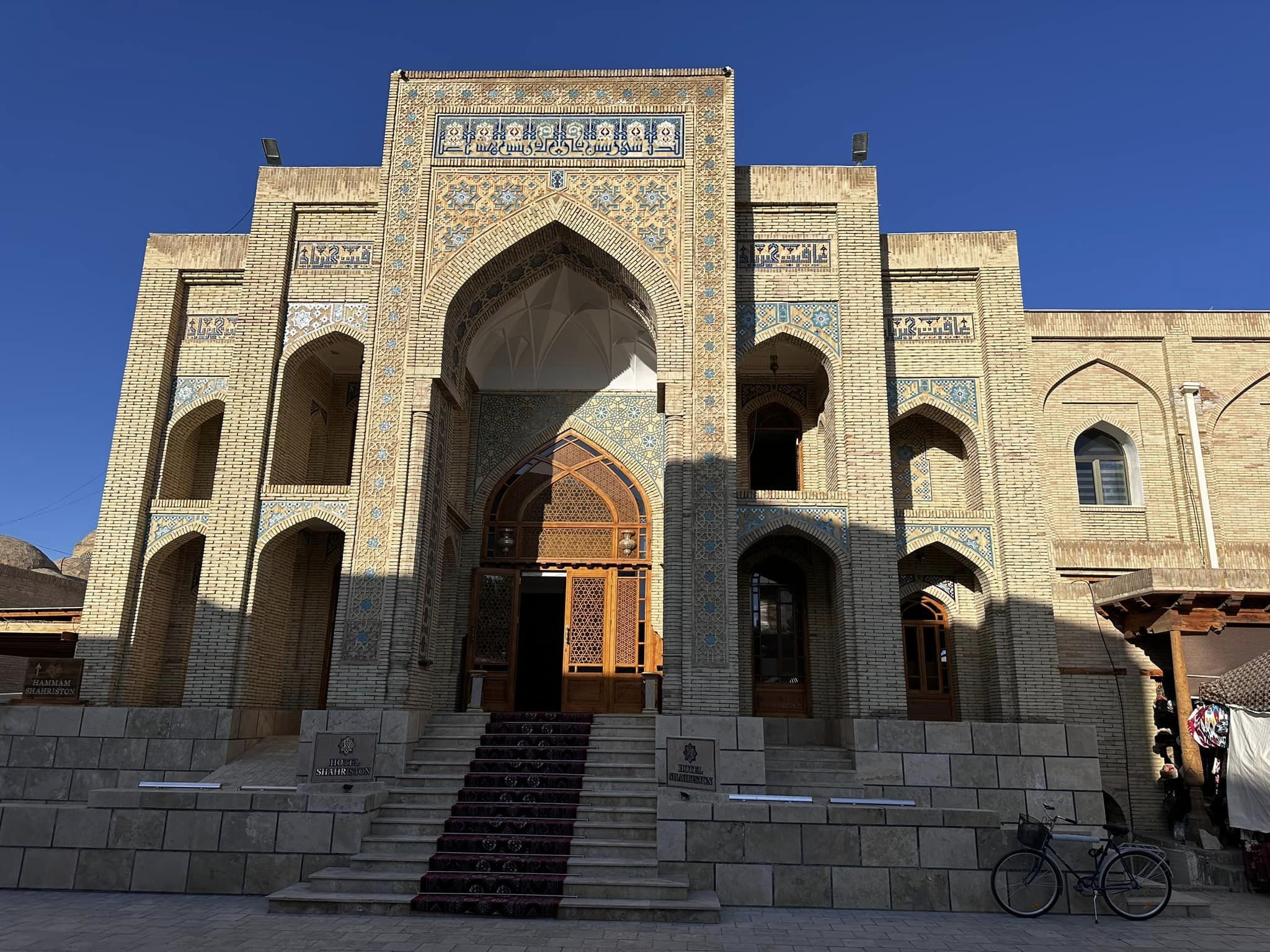
Bukhara met with beautiful weather, turquoise domes of mosques, very beautiful blue palaces and minarets, throngs of tourists from all over the world, the breakdown of all sorts of goods in the street markets and sumptuous pilaf for dinner.
We're going to Samarkand tomorrow.
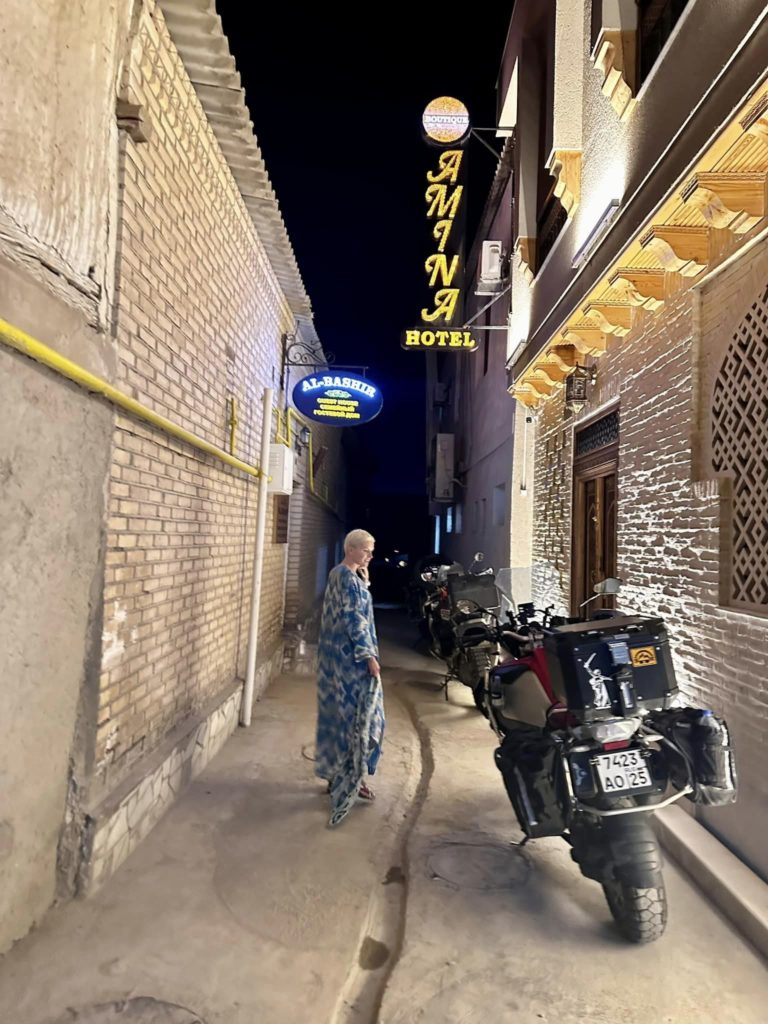
Bukhara - Samarkand.
A white car stopped right in front of me and a man in his 50s got out of it, approached me, said hello and showed me his ID card.
A moment ago I pulled over to the side of the road to wait for my friends who had retreated.
- Where are you coming from? - he asked.
- From Bukhara, but in general from Moscow
— My name is Alijon — the man held out his hand
- Andrey - I answered briefly, shaking the outstretched palm.
While he was asking the usual questions about the motorcycle, the road, the way ahead, the guys arrived. After introducing himself to them, he suddenly suggested that we drive a little further and have tea at his friend's cafe.
- Actually, I am a pensioner of the Ministry of Internal Affairs, more precisely of the traffic police, now I work as a head of a gas compressor station and have a little business - smiling Alijon said and waved his hand - Let's go!
After 15 minutes, we were already sitting at a table in a small cafe by the road. Of course, we didn't get off with tea. Kebabs, meat rolls, ayran, salads, tortillas, tea and even a bottle of local vodka filled the table. We refused vodka, and tasted everything else with pleasure, so much so that we barely crawled out from behind the table.

When we said goodbye, we exchanged phone numbers and I reached for my wallet, but the cafe owner Umijon, who was having lunch with us, gave me a look that I quickly put it back away.
For the first time in my life, acquaintance with a traffic police officer, although a former one, ended in such an unexpected and very pleasant way.
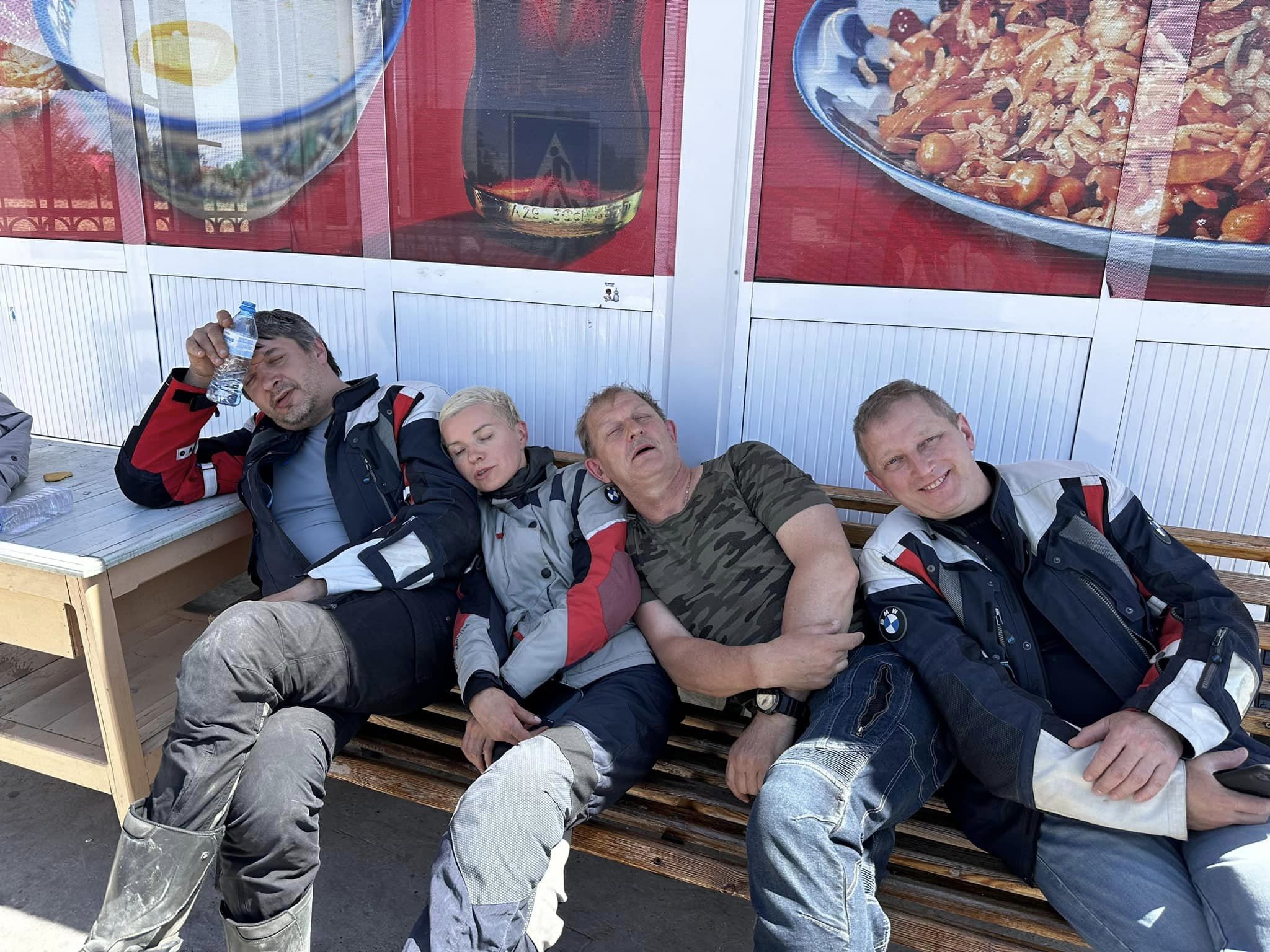
Uzbekistan never ceases to amaze!
The eternal city.
Samarkand is one of the oldest and most beautiful cities in the world, founded in the 8th century BC.
An extraordinarily rich and interesting history, rooted in the depths of centuries. It was conquered by Alexander the Great, it was the capital of one of the greatest empires, the center of science and art in the Middle Ages, the Great Silk Road passed through Samarkand and the grave of Timur, the great commander and conqueror, is located here.
Stunning and majestic monuments of Islamic culture, blue mosques, minarets - it's really impressive!
And also the most delicious pilaf in the world is cooked here and this is not an exaggeration!
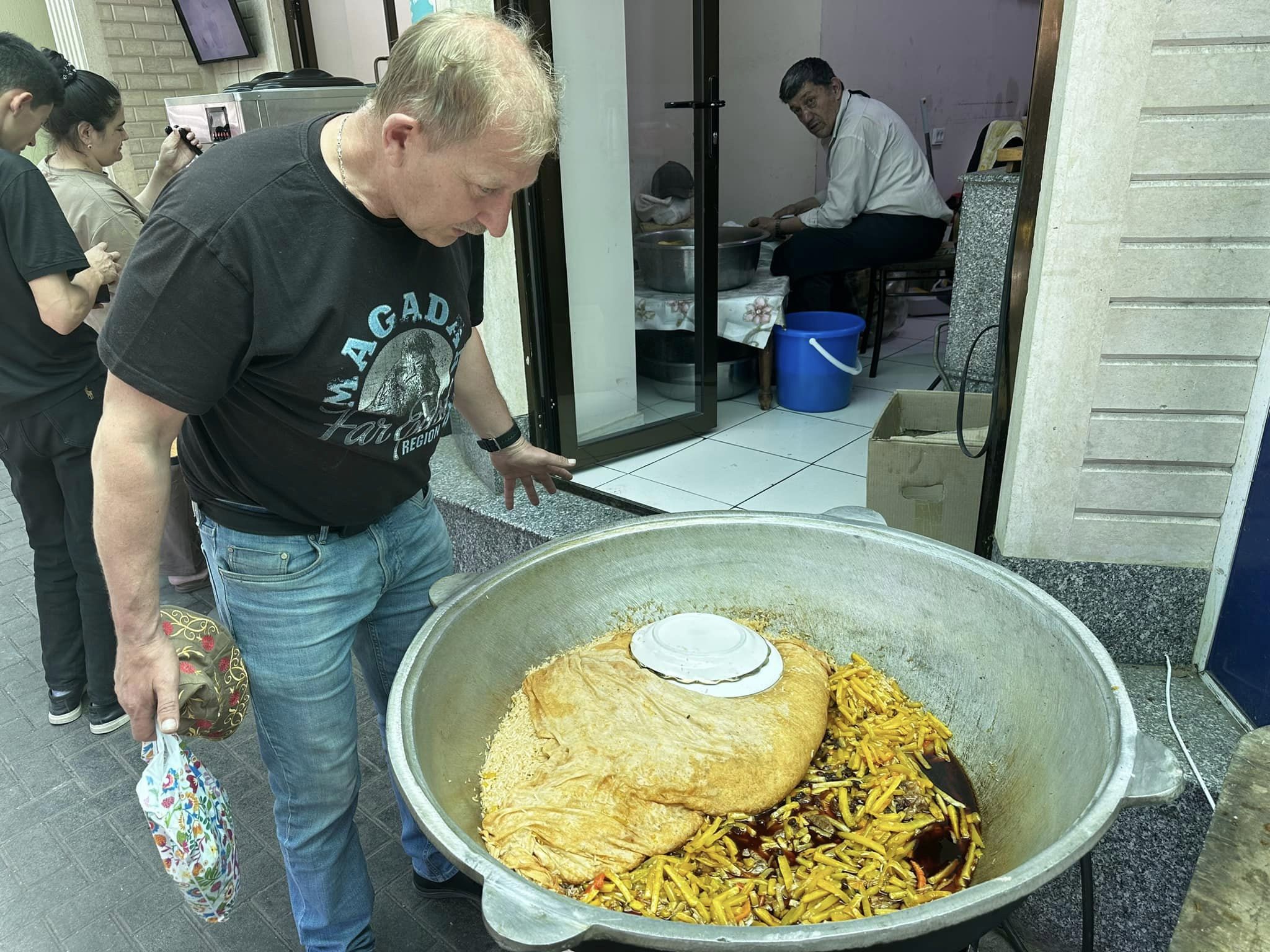
We stayed in Samarkand for two nights to walk through its wide streets, enter the center of the city - Registan Square, surrounded by cult buildings of incredible beauty and scale.
If you haven't been to Uzbekistan yet, I highly recommend it, you'll love it, I promise! ))
Tajikistan
- Where are you going next? - asked a guy at the exit from the Uzbekistan-Tajik border checkpoint, which we passed without problems in 1.5 hours.
- We will stop at Lake Iskanderkul, then on to Dushanbe. - I answered.
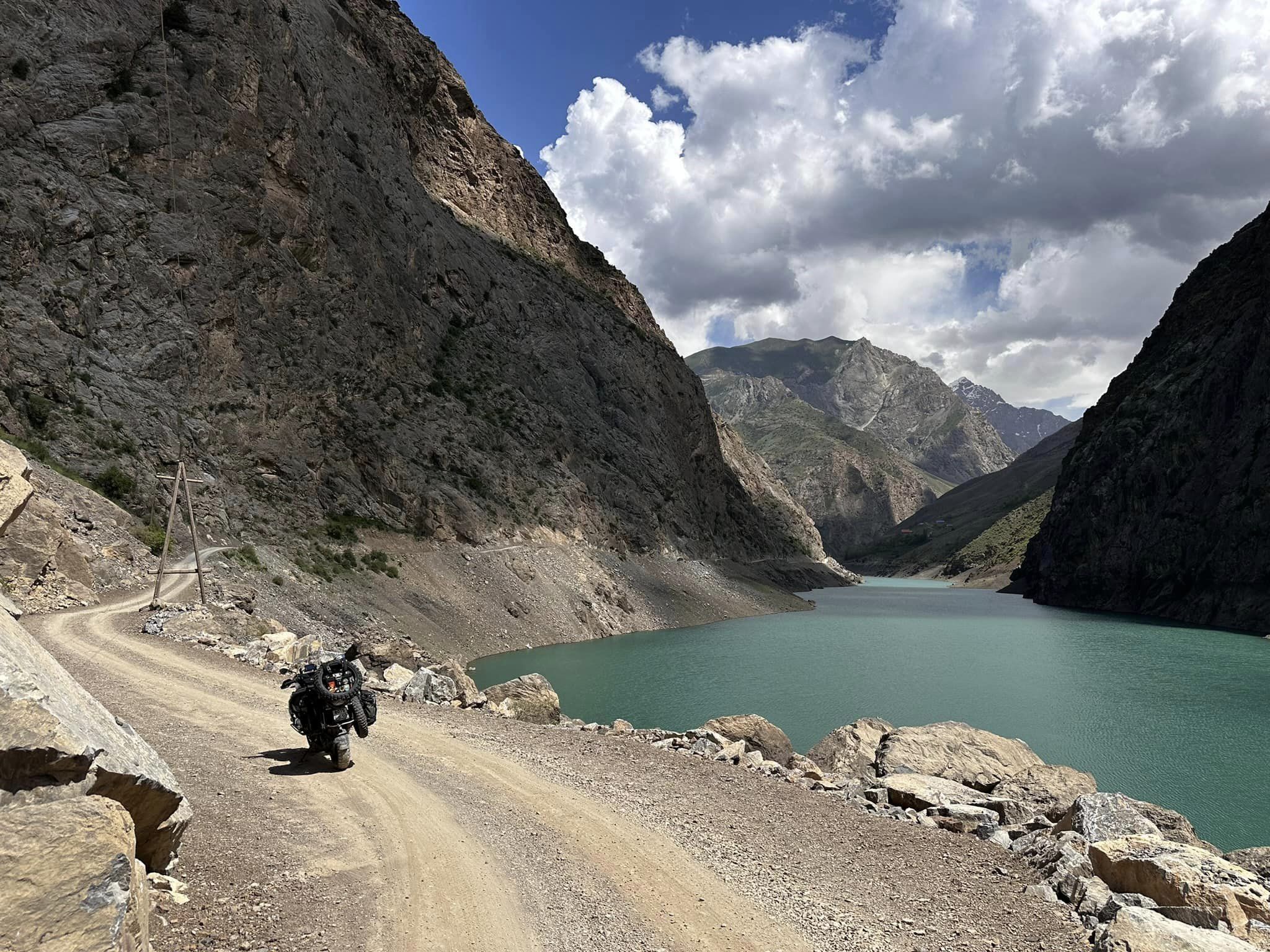
- Don't you want to go to Haftkul, Seven Lakes? It's very beautiful there! - he advised with a smile. - It's not far away, 30 km, after Penjikent, turn right.
The Fann Mountains that Tajikistan greeted us with are amazingly beautiful in their own right.
But there are places in this vast mountain range that are particularly beautiful. The valley or gorge of the Seven Lakes is one of them
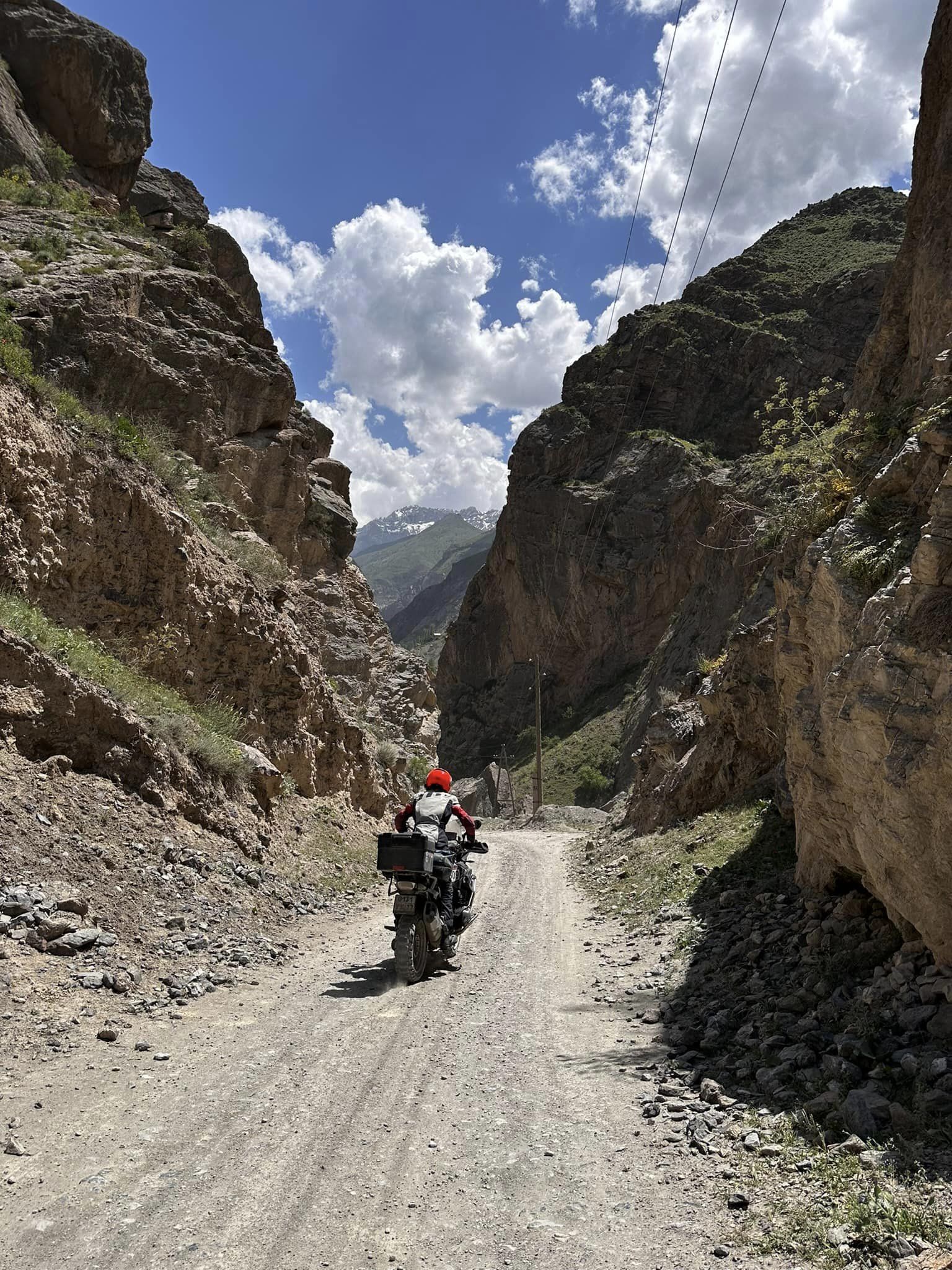
A cascade of mountain lakes, the highest of which is located at an altitude of 2400 meters surrounded by cliffs with snow on their tops.
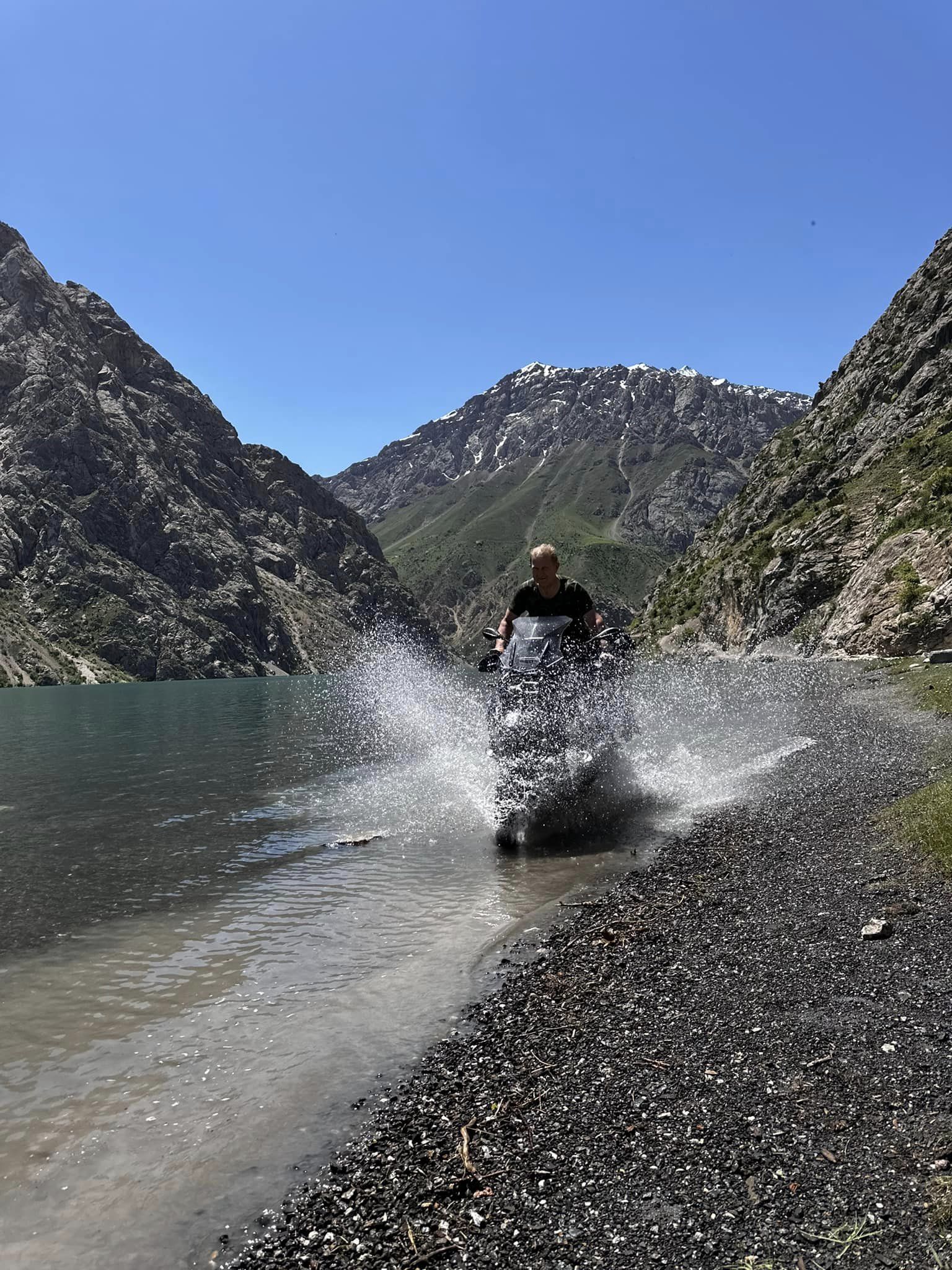
The purest transparent water, it can be drunk, streams flow into the lake from it runs the river and downstream it forms lakes of extraordinary beauty, different in shape and color.
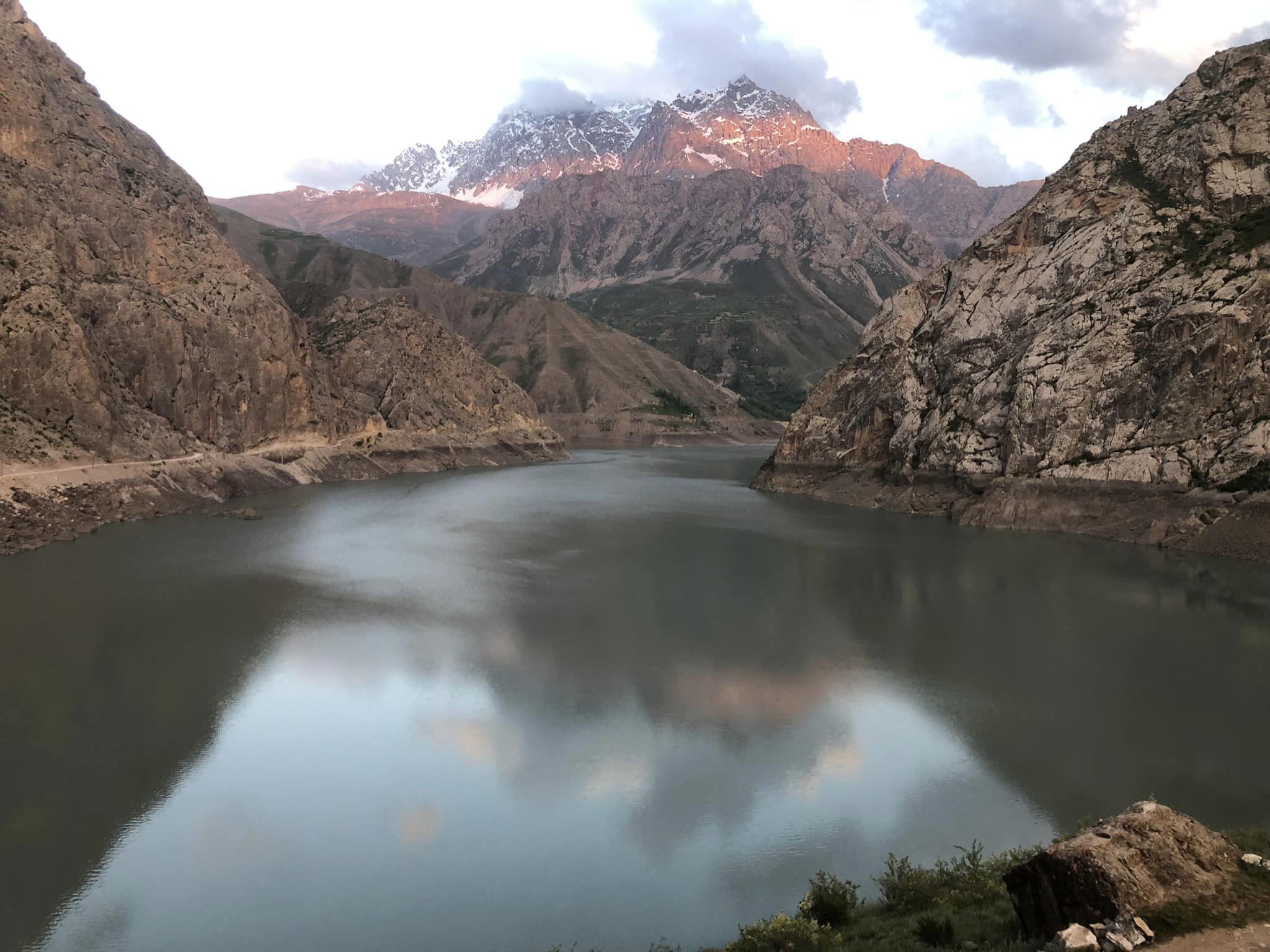
The dirt road leads up along the river, then cuts into the rocks. Along the way we meet aulas with houses made of clay and sticks
Cheeky cheerful children run out on the road, stretching out their hand for a clap on the palm, an old man in a national robe, a woman leading a donkey laden with goods under the reins - all natural and very colorful!
In the morning, after having breakfast and green tea in the hospitable house of a hostess with a beautiful name Begima, we drove down the Seven Lakes Gorge, making short stops for photos.
After an hour we got on a beautiful highway serpentine going into the mountains.
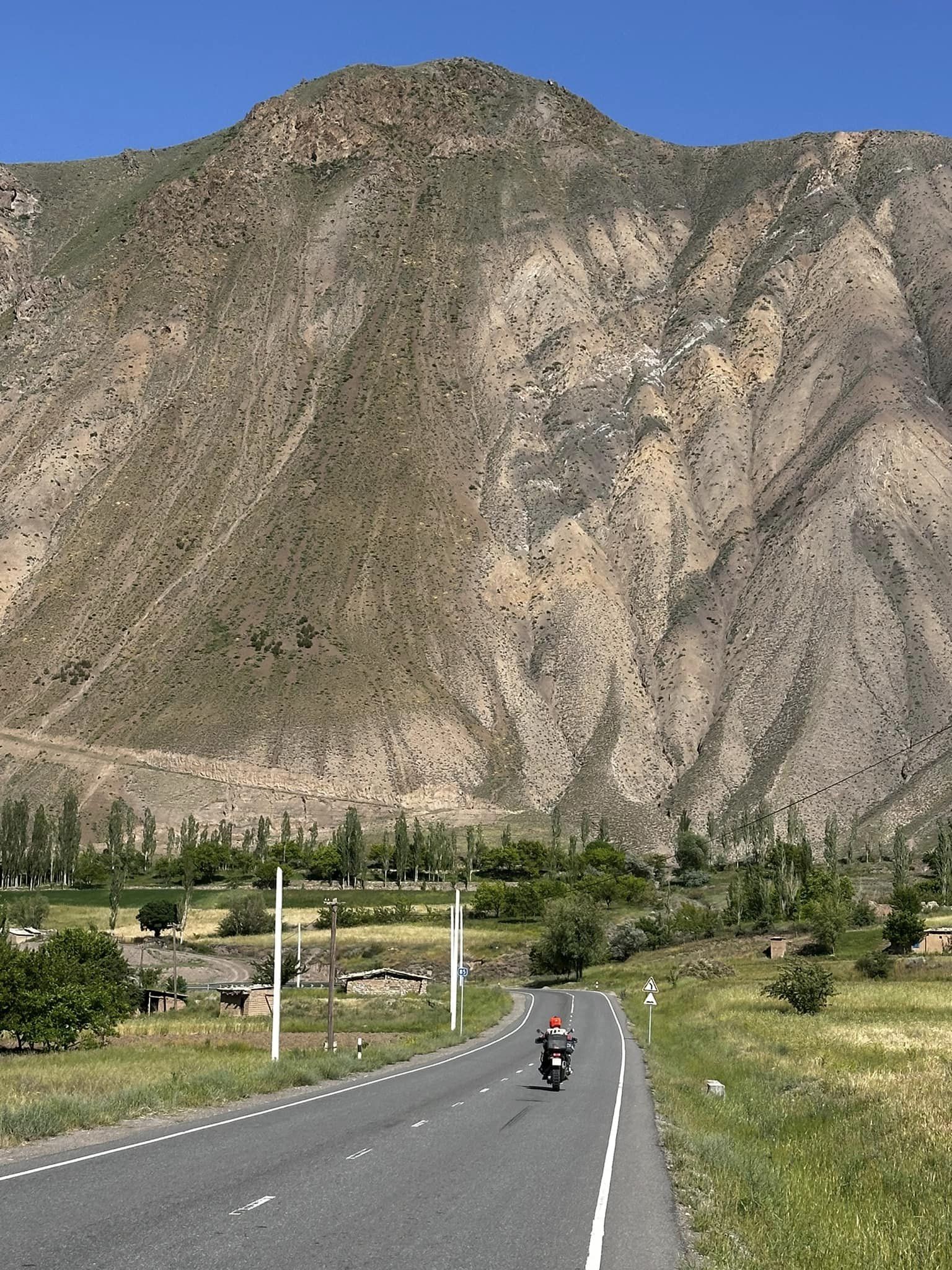
This is not the first time I have crossed the Fann Mountains, but I never cease to marvel at their majesty and beauty.
When you drive through the gorge along the Zeravshan River, running somewhere below, in the abyss, and before you stand a wall of rocks going into the sky, you feel like an ant, a speck of dust among the giants.
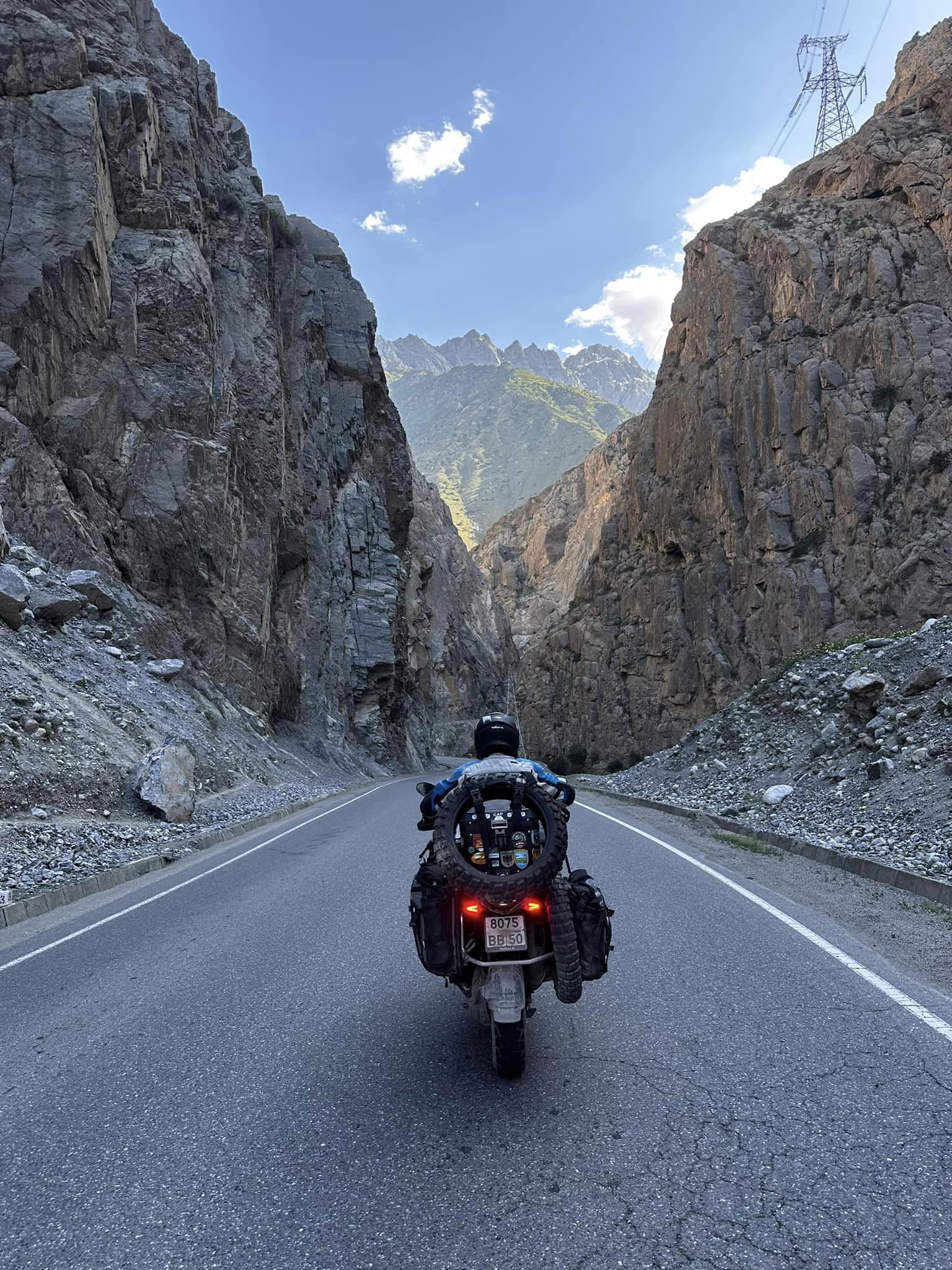
After about 150 km we started to climb and one of our bikes stopped riding. The engine started to malfunction and eventually, before reaching the top of the pass 1.5 km away, it stopped.
Just a little bit short of the terrible and horrible tunnel, which is about six kilometers long. When I passed through it six years ago, it had no lighting, no ventilation, water was pouring from the ceiling and the pavement was broken. That's why it has another name besides the official one - "Cyclops' Ass".
Now the condition of the Anzob Tunnel is not much better and there is also blue smoke from the black hole.
Having caught a truck in the usual way, we loaded the corpse of BMW into it and the last 100 km to Dushanbe it was already on four wheels.
The adventure continues.
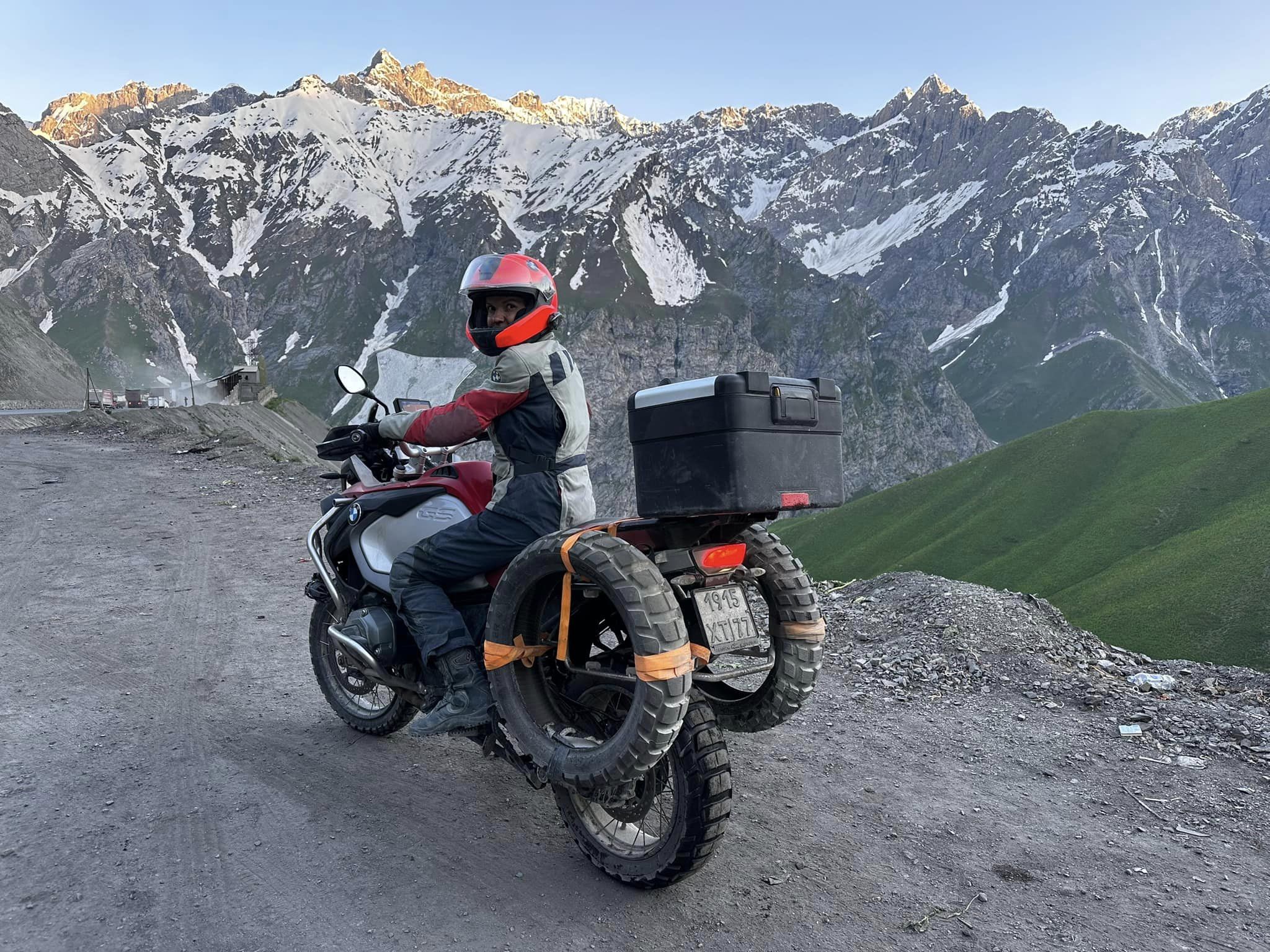
 Cap-travel.ru
Cap-travel.ru